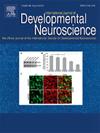Epigenetics, Resilience, Protective Factors and Factors Promoting Positive Outcomes: A Scoping Review
Abstract
Introduction
While several studies have examined the relationship between adverse social exposures and epigenetic mechanisms, the association between DNA methylation, resilience, protective factors and factors that promote positive outcomes remains underexplored.
Goals
This study aims to analyse scientific publications on epigenetics, specifically focusing on DNA methylation in relation to resilience and individual/social protective/positive factors.
Method
A scoping review was conducted using the descriptors DNA methylation, resilience, self-esteem, emotional regulation, social support and social and emotional functioning, covering the years 2008–2019. The databases used included Web of Science, PubMed and Embase. The analysis included 110 articles, reviewed for identification and profile, article focus, objectives, epidemiological and epigenetic methods, protective/positive factors and impacts on physical and mental health.
Results
There has been a significant, gradual increase in publications over the years, particularly regarding epidemiological studies involving human participants. Most studies utilized a candidate gene approach to assess DNA methylation, while broader genome-wide methylation profiles were less frequently examined. Histone modifications and noncoding RNAs were also discussed, especially in review articles. Resilience was identified as the most studied topic, with analyses focusing on (1) mental disorders, (2) parental mental health, (3) early life stress, (4) biological age and development, (5) clinical and physiological conditions and (6) environmental/socioeconomic factors. A wide variety of genes associating resilience and epigenetics were pointed out, for example, NR3C1, SLC6A4, BDNF, and FKBP5. Additionally, individual and social bonds and competencies such as social and emotional functioning, maternal care and social interaction among others were grouped as protective factors or that promote positive outcomes and were linked to genes such as OXTR, followed by FKBP5 and NR3C1.
Discussion
The significance of epigenetics in neuroscience and its potential public health applications is still emerging. This field invites reflection on prevention and health promotion strategies and highlights growing evidence that social inequalities, adversities and early-life experiences may have lasting effects on gene expression throughout the lifespan.


 求助内容:
求助内容: 应助结果提醒方式:
应助结果提醒方式:


